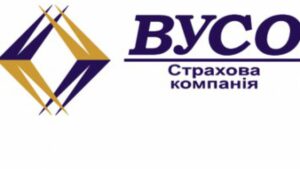
On March, 22nd Kharkivoblenergo JSC has announced about the intention to conclude with IC VUSO (Kiev) the contract on purchase of services of compulsory insurance of civil liability of owners of land vehicles (OSAGO).
According to the message in the system of electronic public procurement Prozorro, the expected cost is UAH 5.424 million, the price offer of the company – the only bidder – UAH 4.989 million.
IC “VUSO” was founded in 2001. It is a member of ITSBU and NASU, a participant of the Agreement on direct settlement of losses and a member of the Nuclear Insurance Pool.

Nova Poshta, the leader in express delivery in Ukraine, has set a record in Moldova by processing 38,137 parcels in one day on February 28, which is more than 50 shipments every minute, the company’s press service reports.
“Nova Poshta in Moldova set the record thanks to fast delivery from the world’s largest online stores, such as iHerb, Makeup, Zapatos, Temu, Aliexpress, and others. On February 28, 2025, the company processed 38,137 parcels in one day, which is more than 50 shipments every minute,” the press service of Nova Poshta said in a statement on Wednesday.
In February, 88% of all parcels in Moldova came from foreign marketplaces. The most popular goods among Moldovan buyers are clothes, shoes, cosmetics, electronics and household appliances, the press service noted.
“This record is the result of the trust of our customers and the daily work of the Nova Poshta team in Moldova. Moreover, in February, we processed 714,805 shipments, which is 18% more than in the whole of 2022. This is the absolute maximum in the history of Nova Poshta’s work in Moldova,” the press service of the CEO of Nova Poshta in Moldova quoted Sergei Shapran as saying.
According to the report, the previous record was set on December 20, 2024, when Nova Poshta processed 34,476 parcels in Moldova per day.
“Nova Poshta in Moldova has expanded its network to 61 delivery points, 260 post offices and 31 branches. The company has implemented a system of address storage by cell number in the branches, which reduced the time to find a parcel from 3 minutes to 45 seconds. A new sorting terminal with a modern train sorter system was launched in Chisinau, which operates 24/7. Each parcel is carefully dispatched, which guarantees accurate delivery and reduces the risk of loss.
As reported, last year Nova Poshta doubled the number of processed parcels in Moldova to almost 4 million. The number of shipments in Moldova increased by 26% to 778 thousand. The number of international shipments quadrupled compared to 2023 to 3 million.
Nova Poshta’s presence with a network of post offices in Moldova covers 20 cities in the country, including Briceni, Edinet, Ungheni, Balti, Comrat, Cahul, Orhei, Taraclia, Ceadir Lunga, Ialoveni, Hincesti, Caşani, Stefan Voda, Falesti, Soroca, Guma, Nisporeni, Leova, Novi Aneni. A number of them are located in the stores of the largest supermarket chains – Kaufland, Linella, Merci and Local.

Urea production in Ukraine in March 2025 will decrease by 45-50% compared to last year, InfoIndustry reports.
“This is due to the shelling of the gas transportation system, which occurred against the backdrop of high activity in the fertilizer market ahead of the agricultural season,” the analysts explained.
The experts recalled that on the night of March 21, Russians shelled the Sudzha gas distribution system. After that, futures on the Dutch gas hub TTF rose by 2%. The cost of 1 MWh reached EUR43.8 ($500 per 1 thousand cubic meters).
The global price of urea decreased by an average of $20 per tonne over the past week across all sources. At the same time, prices for raw materials, such as ammonia and natural gas, are also declining as the fertilizer procurement season in the EU has started and is at its peak. Gas prices in the EU have stabilized.
In Ukraine, the price of gas dropped by 3.5% to UAH 16,012.35 excluding VAT on March 21. Last week, 17.2 million tons of gas were sold on the exchange.
Ukrainian fertilizer producers reduced their nitrogen fertilizer production capacity in March. According to Infoindustriya, as of March 21, Rivne Azot’s capacity utilization dropped to 45% and Cherkasy Azot’s to 31%, although a month ago both companies were at 65-67%. The industry agency adds that these data are estimates based on gas consumption by the plants and unloading of finished products.
“Imports (to Ukraine – IF-U) will not be able to increase due to the limited volumes available for purchase in April. This will lead to a consistently high price for the product,” analysts predict.
According to their information, urea is currently sold on the free market at a price of 24.6 thousand UAH/ton, FCA ports of Ukraine, and the average price with delivery to the central regions of Ukraine is about 25.8 thousand UAH/ton.

The Spanish economy grew by 0.8% in the fourth quarter of 2024 compared to the previous three months, according to the national statistics agency INE, which presented the final data. The figure coincided with the previous estimate and with the growth rate in the third quarter.
Consumer spending in Spain in October-December increased by 1% compared to the previous quarter, government spending increased by 0.3%, and business investment by 2.9%. Exports of goods and services increased by 0.1%, imports by 1.4%.
The industrial sector recorded an increase in production by 0.3%, the construction sector by 2.7%, and the services sector by 1%.
In annual terms, Spain’s GDP grew by 3.4%, while previously it was reported to have risen by 3.5%. At the end of 2024, according to the final data, the Spanish economy grew by 3.2%, this data was confirmed.
Source: http://relocation.com.ua/spains-economy-grew-by-only-08/

Dragon Capital, a Kyiv-based investment company that invested about $700 million in Ukraine between 2015 and 2021, excluding reinvestments of several hundred million more, plans to invest $100 million in 2025 due to improved macroeconomic predictability and economic growth, anInterfax-Ukraine correspondent reports.
“In the middle of last year, we started considering new investments. This year, we plan to make about $100 million in new investments,” owner and CEO Tomas Fiala said at a conference titled ‘Logistics as a Driver of Economic Growth’ organized by the We Build Ukraine think tank in Kyiv on Tuesday.
The businessman added that it will be mainly financed by his own money and co-investors’ equity, while a smaller part, “maybe up to a quarter,” will be borrowed.
He clarified that out of the $700 million of investments in 2015-2021, the share of debt financing was about a third, up to $250 million, of which 80% has already been repaid, but there was also a significant portion of private Western investors, either European or American.
“We really believe that 2025 is the first year during the war when we have much better macroeconomic predictability. We (Ukraine – IF-U) have fully received committees to finance our budget deficit for the whole of 2025 and almost the whole of 2026,” Fiala explained the readiness to resume investments.
He reminded that currently, taking into account the $50 billion financing of Ukraine under the ERA instrument from frozen Russian assets, the total confirmed financing of the country is $56 billion, against the need to finance the budget deficit in 2025 of $40 billion.
“That’s if there is no truce, but if it happens, we will need almost $10 billion less money,” said the owner of Dragon Capital.
He added that, given this situation, a fairly stable exchange rate and economic growth can already be predicted in 2025: by 3% if the war continues, and by 5-7% if it ends.
“We are not the only ones paying attention to the ceasefire negotiations. You can look at the following “barometer” – the prices of Ukrainian Eurobonds traded in London. These are dozens of foreign investors who are assessing Ukraine’s risks. The prices of these bonds have been rising for the last 2 years, but this growth has accelerated since October last year,” Fiala said.
According to him, new investors are assessing the Ukrainian risk through sovereign Eurobonds, focusing on yields of 13-14% per annum – this is the rate at which they are willing to buy the Ukrainian government’s debt.
Fiala added that investors are willing to buy corporate bonds of reliable Ukrainian companies such as MHP and Kernel with a yield of about 10%, and sometimes even 9%.
Dragon Capital is one of the largest investment and financial services groups in Ukraine, providing a full range of investment banking and brokerage services, private equity, and asset management to institutional, corporate, and private clients. The company was founded in 2000 in Kyiv.

Over the next 10 years, Ukrtransgaz plans to invest UAH 31.040 billion in the development of underground gas storage facilities (UGS) in accordance with the gas storage development plan for 2025-2034 approved by the National Energy and Utilities Regulatory Commission (NEURC).
“The result of the implementation of the Gas Storage Development Plan for 2025-2034 should be to ensure reliable and trouble-free operation of gas storage facilities,” the regulator said in its justification for the relevant resolution adopted at a meeting on Tuesday.
Based on this year’s results, Ukrtransgaz plans to spend UAH 1,091.468 million of its own funds on the development of the UGS facilities. In particular, the company plans to allocate UAH 474.320 million for the operation of gas storage facilities, UAH 266.729 million for the modernization and purchase of vehicles, special machines and mechanisms, UAH 207.506 million for UGS facilities, and UAH 93.679 million for the implementation and development of information technologies.
As reported, in 2023, Ukrtransgaz earned almost UAH 7 billion in net profit, compared to UAH 3.2 billion in 2022.
Ukrtransgaz is a part of Naftogaz Group. It provides for the operation of Ukrainian underground gas storage facilities, as well as modernization and construction of main gas pipelines and facilities on them. It owns 12 underground gas storage facilities located throughout Ukraine with a total capacity of 31 billion cubic meters.